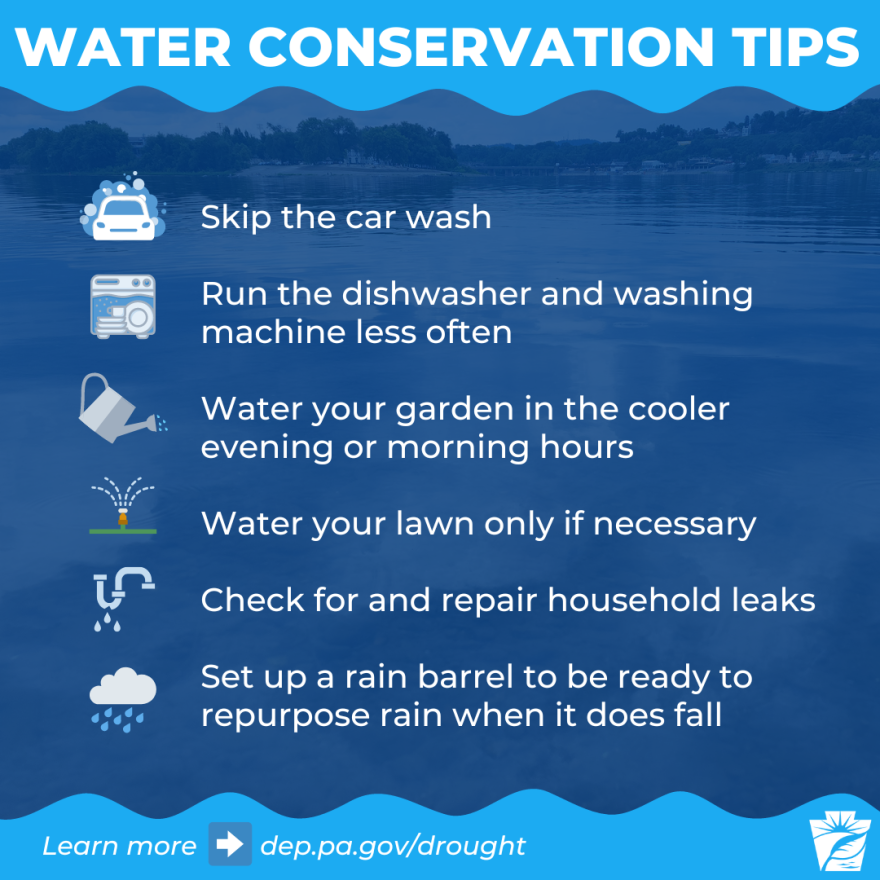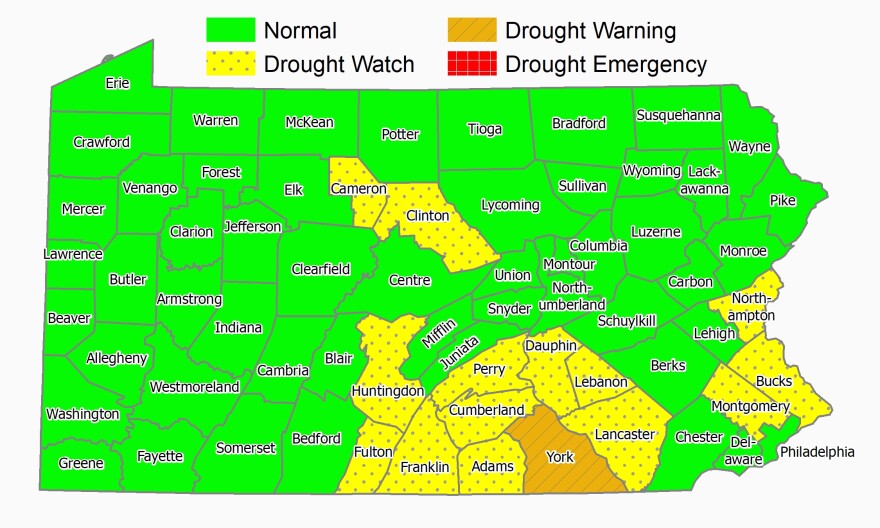- The state Department of Environmental Protection has provided an update on the drought conditions in Lehigh and Northampton counties
- Despite some progress, there still are lingering precipitation deficits and certain groundwater wells that have not fully recovered
- Public water suppliers have implemented conservation measures, and residents are encouraged to reduce water use by 5-10%
HARRISBURG — A drought watch that has been in effect for Lehigh County since July has been lifted, the state Department of Environmental Protection announced Friday.
But the measures remain in effect for Northampton County, DEP said.
Pennsylvania has seen progress since DEP issued a statewide drought watch in July, DEP said. But there still are lingering precipitation deficits and some groundwater wells that have not fully recovered, according to DEP.
Residents in counties on drought watch are urged to reduce their individual water use by five to 10 percent, which equates to a reduction of three to six gallons of water per day.The Pennsylvania Department of Environmental Protection in a news release
In addition to Lehigh County, the drought watch was lifted for Berks, Chester, Clarion, Fayette and Venango counties.
In addition to Northampton, other counties that remain on drought watch are Adams, Bucks, Cameron, Cumberland, Dauphin, Franklin, Fulton, Huntingdon, Lancaster, Lebanon, Montgomery and Perry.
Various public water suppliers have implemented voluntary or mandatory water conservation measures.
Lehigh County Authority NCSA Clearview Farms Division in Northampton County has requested voluntary water conservation.
Water-saving tips for households include running dishwashers and washing machines with full loads, taking shorter showers and fixing household leaks promptly.State Department of Environmental Protection
Residents in counties on drought watch are urged to reduce individual water use by 5-10%, or three to six gallons of water per day.
DEP offers several water-saving tips for households, including running dishwashers and washing machines with full loads, taking shorter showers and fixing household leaks promptly.
Installing low-flow plumbing fixtures and aerators on faucets and using high-efficiency, front-loading appliances also are recommended.

DEP determines drought conditions by assessing data from public water suppliers and analyzing indicators such as precipitation, surface water flow, groundwater level and soil moisture.
The department says it collaborates with the U.S. Geological Survey to monitor those indicators, which are tracked in various locations across Pennsylvania.
For more information and daily updates on drought conditions, residents can visit the USGS Pennsylvania drought condition monitoring website.


